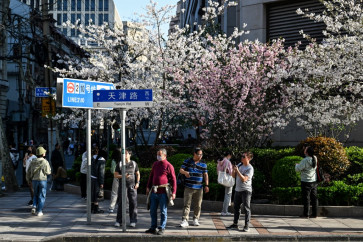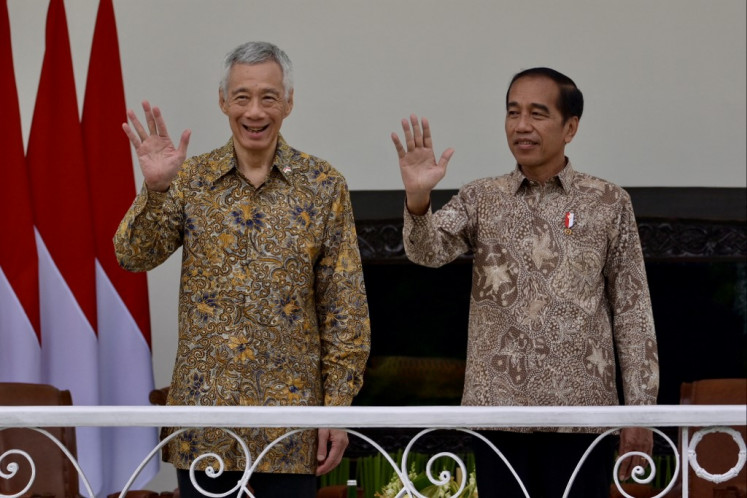Indonesia wants to see end to QE tapering uncertainty
Indonesia has called on the US to end the uncertainty and provide greater transparency over its quantitative easing (QE) policy, as the latest sentiment from the US triggered a rout on the rupiah and stock markets on Thursday
Change Size

I
ndonesia has called on the US to end the uncertainty and provide greater transparency over its quantitative easing (QE) policy, as the latest sentiment from the US triggered a rout on the rupiah and stock markets on Thursday.
'The more transparent [the US Federal Reserve] is and the more certainty it provides, the happier emerging economies will be,' Bank Indonesia (BI) Senior Deputy Governor Mirza Adityaswara said on Wednesday evening in an interview with The Jakarta Post.
Mirza said he hoped that the Fed would provide clearer information on when ' and by what amount ' it would reduce its monthly US$85 billion monetary stimulus. It could begin, he suggested, by signaling that it would cut bond-buying purchases to $10 billion a month, starting in March.
The rupiah weakened on Thursday to below the psychological 12,000 per US dollar threshold for the first time in four years, according to BI data, while the Jakarta Composite Index (JCI) fell to a three-month low on speculation that the Fed may taper its monetary policy sooner than expected, after the latest economic data showed some improvement in the US economy.
The rupiah fell 58 basis points to 12,018 per US dollar, according to prices from the local banks compiled by BI in the Jakarta Interbank Spot Dollar Rate (JISDOR). The JCI dropped to 4,189.87, its lowest level since Sept. 9, before rebounding to close at 4,216.89 or 0.58 percent lower than a day earlier.
Most stock markets in the region also closed in the red. Japan's Nikkei dropped by 1.5 percent, the Philippines' PSE Index fell by 1.2 percent and Singapore's FTSE tumbled by 1.1 percent, according to data compiled by the Indonesia Stock Exchange (IDX).
The bearish performance of regional indexes occurred after US economic figures released this month showed that the country's private sector payrolls, new-home sales and manufacturing were all better than initial forecasts, spurring speculation that the US central bank would start cutting down its QE at its next monetary meeting on Dec. 17-18.
'The sooner the QE is kicked out of the big picture, the better,' said Mahendra Siregar, chairman of the Investment Coordinating Board (BKPM). 'We are currently just responding to the addictive medicine of the QE. This is driving people insane and making them confused as to what to do and what needs to be done.'
The Fed's communication strategy has been scrutinized and criticized for giving mixed signals to global financial markets on the timing of its QE tapering plan.
BI Governor Agus Martowardojo once said that uncertainty over the issue had prompted a 'high-risk, low-risk' situation for Indonesia, as foreign fund managers continued to move their portfolio investments in and out of the country, prompting volatility for both the financial market and the rupiah.
After breaching the 12,000 per dollar on Thursday, the rupiah has now declined by more than 22 percent this year, making it one of the worst-performing currencies in Asia. 'The rupiah rate right now has begun to overshoot because the initial exchange level of 11,000 to 11,500 [per dollar] had proved successful at reducing imports,' Mirza said.
Finance Minister Chatib Basri has repeatedly called on the Fed to communicate better to emerging markets over its QE tapering plan, which has so far triggered capital outflows that threaten to harm those markets' economic expansions, including Indonesia.
'It is unfair to expect strong growth in developed countries at the expense of emerging markets,' Chatib said on Thursday. 'Given that 40 percent of global growth comes from emerging markets, if they fail, there will be no market at all for developed countries.'









